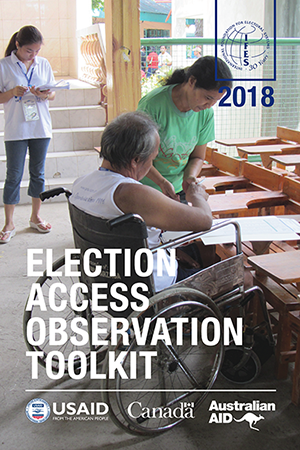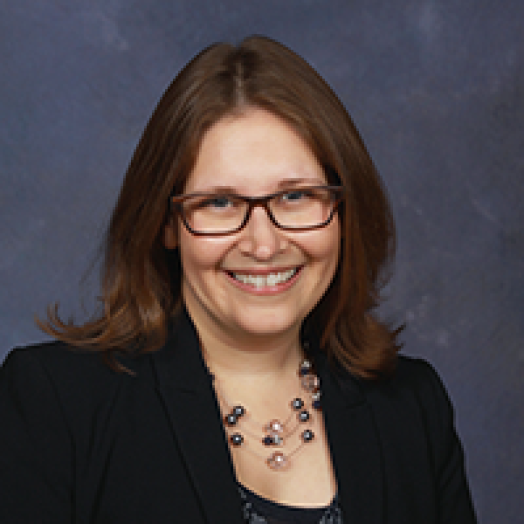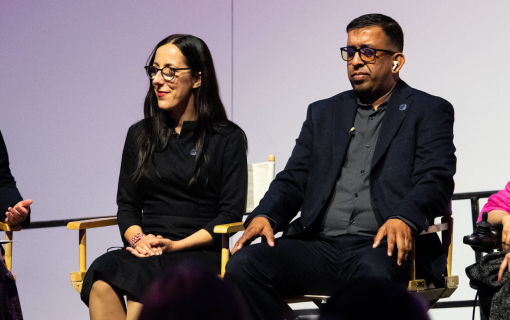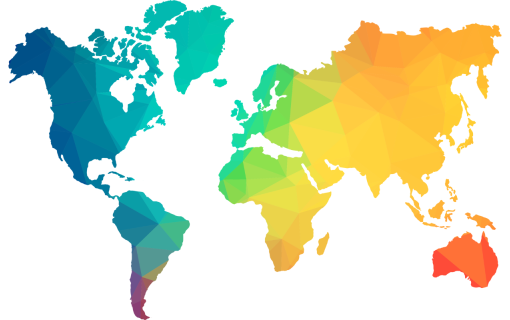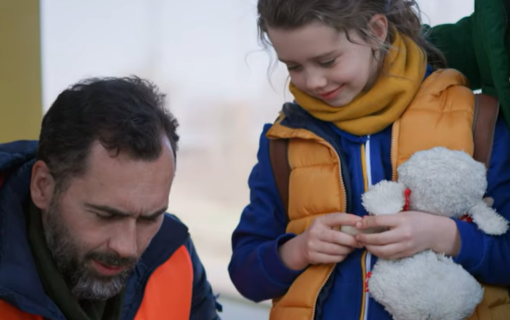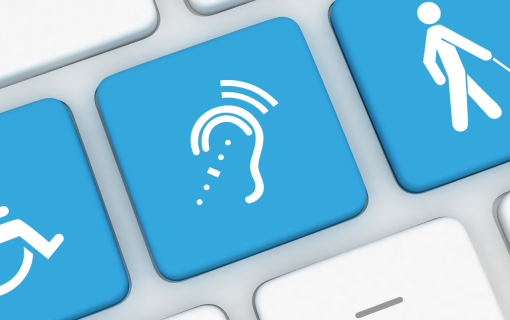
IFES Receives Award for Innovative Disability Inclusion Practices
In recognition of its efforts to advance the political rights of persons with disabilities worldwide, the International Foundation for Electoral Systems (IFES) will be receiving two Innovative Practice Awards from the Zero Project in February 2019. The Zero Project, an initiative of the Austrian Essl Foundation, provides a platform for sharing innovative solutions to barriers faced by persons with disabilities around the world. The two tools selected for the award include IFES’ Election Access Observation Toolkit and its Electoral Sign Language Lexicon.
IFES, along with disabled people’s organization (DPO) partners around the world, developed the Election Access Observation Toolkit to provide data on barriers to political access and demonstrate the leadership capabilities of people with disabilities. Drawing upon IFES’ experience conducting dozens of election access observations in countries around the world and international and regional standards for inclusive elections, the toolkit provides DPOs and election observer groups with the background and tools to effectively incorporate a disability rights perspective into domestic and international observation missions. The toolkit, supported by the Australian Department of Foreign Affairs and Trade, United States Agency for International Development and Global Affairs Canada, gathers lessons learned from election access observations conducted by IFES and DPOs in a wide range of country contexts, including Haiti, Indonesia and Kosovo.
“It is one thing to hear about [inaccessible polling stations] and be told about it, but it is another thing to see it for yourself!” – Luckner Médélus, election observer in Haiti, 2015
In addition to providing examples of questions that can be integrated into checklists, the toolkit emphasizes the value of training people with disabilities to conduct targeted observations. Not only does this practice result in the collection of information that can be used to enhance access, but it builds the skills of disability rights advocates to participate as election observers. Election access observations also demonstrate the leadership of persons with disabilities in their communities, countering long-held discriminatory beliefs about capacity. The data collected by election access observers is often the only information that is available on participation of persons with disabilities in elections and political life, and can be used for evidence-based policymaking.
In addition to the Election Access Observation Toolkit, IFES also received an Innovative Practice Award from the Zero Project for its Electoral Sign Language Lexicons. For Deaf voters, language barriers are a profound challenge to full participation in political life. In many countries, Deaf communities are further marginalized from public life because they do not have access to educational opportunities, which results in low literacy, and during the electoral period, voting materials are not translated into sign language. This creates an alarming gap in access to information for Deaf communities.
“Every Libyan has the right to this information, and all Libyans have the right to raise their voices, even if they are Deaf.” – Ramadan, a Deaf voter in Libya
Electoral Sign Language Lexicons seek to address this information gap by capturing or developing critical vocabulary that can be used by Deaf communities to participate in political life. The lexicon is developed through a collaborative process that brings together Deaf leaders, sign language experts and sign language interpreters. Once developed, lexicons are made available as PDFs, YouTube videos and as a mobile application. The methodology was first used in Libya in 2015 and has since been contextualized for Morocco, with Haitian and Tunisian versions in progress. The Electoral Sign Language Lexicon includes over 300 words related to political participation. IFES’ methodology also includes a training-of-trainers workshop that empowers Deaf advocates to share the lexicon with their communities. Through its innovative approach, the lexicon allows Deaf persons to not only understand procedures of voting, but also make informed decisions in the electoral process.
An award ceremony will be held at the Zero Project Conference 2019 at the United Nations Office in Vienna, Austria, from February 20-22.




